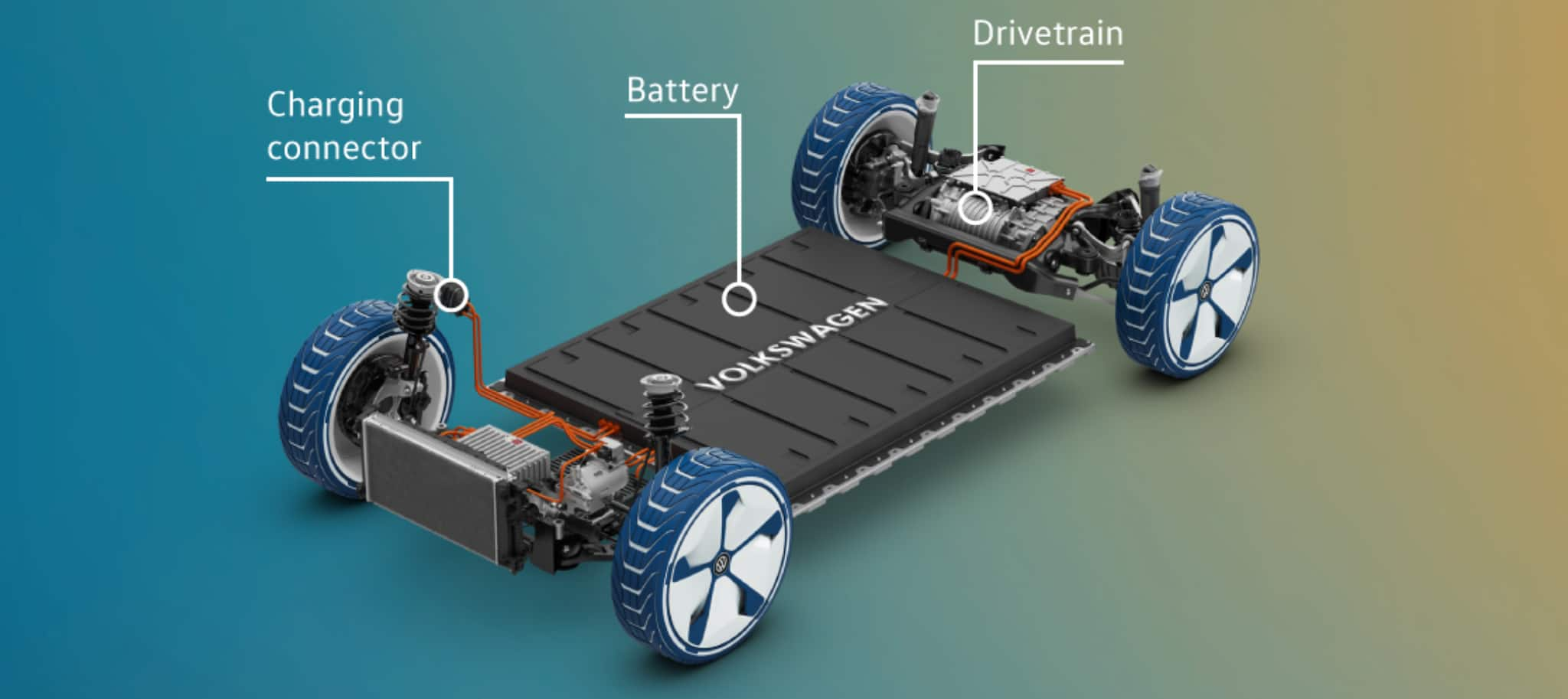



It’s a different take on plug and play. With the global unveiling of Mahindra & Mahindra’s “Born Electric” platform scheduled for July, the utility vehicle giant has signed an agreement with Volkswagen AG to source components such as electric motors and battery cells from the latter’s highly reputed MEB or modular electric drive matrix architecture. This is part of a bid to aid the rapid electrification of the country’s automotive sector in accordance with India’s “100% zero-emission from vehicles” goal by 2035.
According to Thomas Schmall, CEO of Volkswagen Group Components, “the MEB (platform) is both technologically state of the art and highly competitive in terms of cost. The MEB is thus progressively developing into the leading open platform for e-mobility, generating significant volume and economies of scale.”
What is the MEB platform all about?MEB is essentially an open-vehicle, skateboard platform for electric vehicles (EVs) designed and developed by VW. While it’s currently being used to produce EVs for all VW subsidiaries (Skoda Auto, Seat, Audi, etc), the modular platform has been created to be adaptable by third-party brands that can use it to mass-produce safe and cost-effective EVs without having to go through years of R&D to manufacture their own platform. Translated from the German, MEB stands for “Modular Electric Toolkit”.
Mahindra & Mahindra isn’t the only one to collaborate with the Wolfsburg, Germany-based company. Earlier this year, Ford Motor signed an agreement with the VW Group to produce an electric model for the European market based on the MEB platform. One of the key reasons is that the MEB platform allows manufacturers to scale up their EV production in record time. With the deal, Ford will manage to “double its planned MEB volume to 1.2 million units over a six-year timeframe”, according to an official press statement released by the Volkswagen Group. According to VW, it’s also a platform that can help EV startups get a running start in the business. In fact, its first partnership was with a small German EV maker called e.Go, which is currently using the platform to make EVs designed for urban environments. But given its modular nature, the platform can accommodate individual battery systems that can be used based on the nature and requirements of the EV.
 The modular platform has been created to be adaptable by third-party brands that can use it to mass-produce safe and cost-effective EVs
The modular platform has been created to be adaptable by third-party brands that can use it to mass-produce safe and cost-effective EVsVW launched the MEB platform in 2016, prior to which all its EVs were based on its internal combustion engine (ICE) car platforms, much like the Tata Nexon EV is based on the Tata Nexon—an EV powertrain retrofitted to an ICE chassis. However, using a conventional ICE platform limits the scope in terms of design and ability to offer change, with several fixed components like the engine bay, etc, not allowing for a lot of room for innovation.
The layout is fairly simple: an electric motor integrated in the rear axle, which includes power electronics and transmission, while auxiliary units are located in the front. For a modular skateboard platform like MEB, you get a much larger passenger cell, with all battery cells stored in the thick floor. You also get much shorter overhangs, given there is no ICE to take space. By sharing parts like the motor, suspension, steering mechanism, axles, etc, Mahindra & Mahindra will be able to pump out EVs at a much larger scale in a much shorter span. (Tata Motors recently unveiled a prototype of an EV skateboard platform it developed in-house that underpins the Avinya concept car, the production version of which is expected in early 2024.)
One of the key reasons VW created the open, customisable EV platform is to help brands and countries meet the terms of the Paris climate change agreement. For the Indian market, it is good news as it will enable Mahindra to become a player that can help populate and further popularise EVs in a market that is still adapting to it at a much slower pace than many other markets. Till the time Mahindra starts local manufacture of battery cells, the MEB-led partnership is its best bet to give competition to brands like Tata Motors in the EV segment.
Discover the latest Business News, Sensex, and Nifty updates. Obtain Personal Finance insights, tax queries, and expert opinions on Moneycontrol or download the Moneycontrol App to stay updated!
Find the best of Al News in one place, specially curated for you every weekend.
Stay on top of the latest tech trends and biggest startup news.